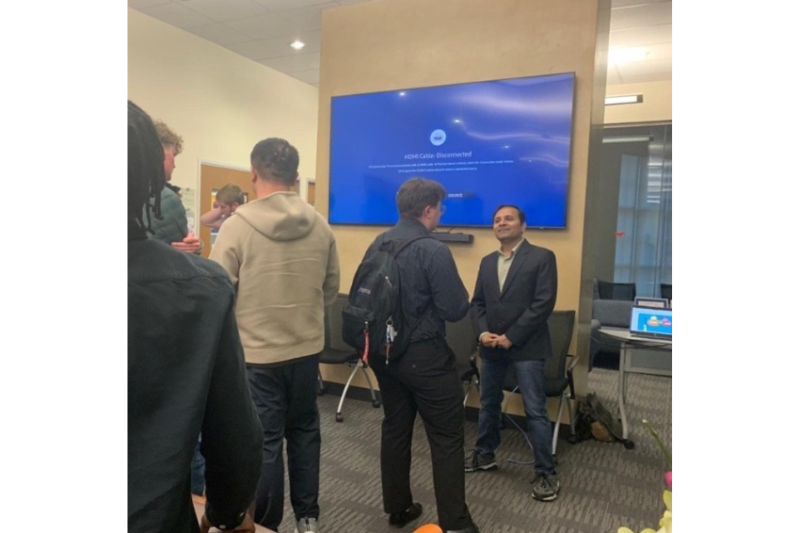Recently, I had the enriching experience of visiting schools and colleges to share insights about the oil industry and my work within it. These sessions were not only informative for the students, but they also offered invaluable lessons and reflections on my own career. Here’s a look at what I learned from these interactions, spanning from elementary school kids to university students.
One of the most profound realizations during these visits was the sense of pride that comes from discussing my profession. It’s a humble pride, rooted in the knowledge that my work contributes to a larger industry that fuels economies and powers lives. Talking about my job offers a unique perspective, allowing me to reflect on the importance of my role and the impact it has on society. It’s a reminder that while I am just one cog in a vast machine, my contributions matter.
Tough Questions From Young Minds
Elementary school students are notorious for asking tough questions, and I found this to be both challenging and fun. Their inquisitiveness forces you to simplify complex concepts, often leading to moments of introspection. As Albert Einstein famously said, “If you can't explain it to a 6-year-old, you don’t understand it yourself.” I put this adage to the test during my visits, and it truly made me evaluate my understanding of the oil industry at a fundamental level.
For instance, when discussing porosity and fluid dynamics, I presented simple experiments that illustrated these concepts. The joy of seeing their eyes light up with curiosity was unmatched. One particularly memorable demonstration involved Oobleck, a non-Newtonian fluid that behaves differently under varying forces. Watching the children engage with the experiment reminded me of the joy of discovery and the importance of fostering curiosity in young minds.
One of the most important lessons I learned is that patience is truly a virtue when teaching. Young students often require repetition for comprehension. As I explained concepts, I found myself rephrasing and revisiting ideas multiple times, ensuring that each student grasped the material. This experience highlighted the importance of effective communication—an essential skill not just in teaching, but in any professional setting.
The Importance of Safety
Safety is paramount in the oil industry, and I made it a point to convey this message during my talks. I chose to focus on the importance of safety protocols and the measures we take to protect workers. This reinforced the idea that, as professionals, we must prioritize positive messaging, especially when discussing sensitive topics.
Engaging With High School Students
Transitioning to high school students brought a different dynamic. Their questions were more focused on practical applications of their academic lessons. They asked about the relevance of mathematics, calculus, geometry, physics, and chemistry in my daily work. This made me reflect on how these foundational subjects, often deemed theoretical, form the backbone of our industry. It’s crucial for students to understand that while they may not use complex formulas daily, the principles they learn in school are essential for building a strong foundation for their future careers.
The Career-Oriented University Perspective
When speaking to university students, the atmosphere shifted to one of career ambitions. They were eager to learn about what a typical day in the oil industry looks like and sought advice on internships, scholarships, and job prospects. As a member of SPE and an editorial board member for TWA and JPT, I was able to share insights from my experiences. This interaction further emphasized the importance of networking and the role it plays in career success.
My involvement with SPE has not only expanded my professional network but also enriched my understanding of the oil industry. Volunteering has allowed me to connect with professionals across various disciplines and locations, enhancing my ability to think creatively and collaboratively. The diverse perspectives I’ve encountered have been invaluable, reminding me that a robust social network is essential in today’s interconnected world.
Writing as a Tool for Growth
Being associated with TWA, JPT, and SPE's Annual Technical Conference and Exhibition (ATCE), another significant benefit of my volunteer work has been the opportunity to write articles for industry publications. This practice has greatly improved my confidence and communication skills. Writing not only allows me to share my knowledge but also serves as a humbling reminder of how much there is to learn from others. Engaging with different viewpoints and experiences has deepened my understanding of the industry and enriched my perspective.
A Call to Action
One striking observation from these interactions was how the perspective of the same job experience changes with the listener’s age and experience. Young children approach the topic with uninhibited curiosity, while high schoolers and university students seek practical information and career advice. This variance in perspective underscores the importance of tailoring our messages to suit our audience. It’s a reminder that what may seem obvious to one group can be a revelation to another.
If you ever get the opportunity to volunteer for a career day at a local school—or even your child’s school—I highly encourage you to take it. The preparation might only take an hour, but the rewards are immense. You’ll gain fresh insights, foster curiosity, and perhaps even inspire the next generation of professionals.
Sharing my experiences in the oil industry with students has proven to be a mutually beneficial endeavor. It has reignited my passion for my work, reminded me of the importance of foundational knowledge, and underscored the value of effective communication. Through these interactions, I’ve learned that no matter what the age of the audience, the quest for knowledge and understanding is universal. Embracing this opportunity not only enriches your own perspective but also helps shape the minds of future innovators and leaders in the field.


